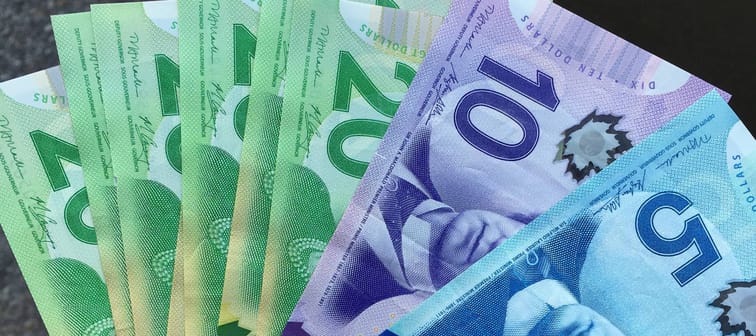Option 1: Pay off your mortgage early

Let’s make the math easy, and presume you're not buying in a major city that's experiencing record price appreciation:
- You borrow $200,000 on a 25-year loan.
- Your interest rate is level at 3%.
- Your mortgage loan payment is $946.50 per month.
If you increase your mortgage payment by an extra $1,000 per month, using a mortgage calculator shows you'll pay off your mortgage in 10 years and save $52,738 in interest — that’s a big number.
Pros
Some of the benefits of paying off your mortgage can’t be measured financially — for some homeowners, it's about peace of mind. Paying off what's probably their biggest bill helps them sleep at night.
What's more, having a mortgage may make some people less comfortable taking on the financial risks that can come with investing.
Paying off your mortgage, or paying a lump sum at each five-year mortgage renewal cycle to lower your monthly payments, will also free up cash to tackle other debts. By eliminating or lowering the mortgage payment burden, you can shift cash toward credit card balances that come with sky-high interest rates, student loans or other bills you want to prioritize.
And, paying down your mortgage builds equity in your home — equity that could be tapped in the future if you're short on cash. Even if you already have a decent emergency fund, you never know what life will throw at you — 2020 is the greatest example of that.
Cons
Having equity is important, but be careful not to put so much toward your mortgage that you’re left with little real cash. Are you one of the thousands of Canadians who lost their jobs in 2020? It’s not easy to tap into your home equity without a steady income. There’s value in keeping a decent sum of cash in a high-yield savings account or other accounts to protect you from the unexpected.
Plus, you need to ask yourself whether putting so much money towards your mortgage will mean missing out on higher returns from other investments.
A better online investing experience
Easy to use and powerful, Qtrade's online trading platform puts you in full control with tools and resources that help you make well-informed decisions.
Invest NowOption 2: Invest in the stock market

Let’s compare how much you can earn investing against the money you'd save by paying off your mortgage early.
- Instead of adding $1,000 every month to your mortgage repayments, you invest that money for 10 years.
- The long-term annual return rate on the S&P/TSX Composite Index was 9.3% per year between 1960 and 2020.
- In total, you’d earn $193,453 before taxes, according to an investment returns calculator that factors in simple and compound interest rates, as well as the inflation rate.
Pros
According to the calculations, you’d earn $193,453 by investing, while saving only $52,738 in interest by paying off your mortgage early.
It’s a clear win financially, even before taking tax implications into consideration. If you invest that money in an RRSP, you can take advantage of significant tax sheltering.
Cons
If this was such an obvious choice, it wouldn’t be much of a debate, would it?
It really comes down to your tolerance for risk. Those average returns are just that, averages. Your return isn’t guaranteed and you could end up losing money investing in stocks or bonds. With a fixed-rate mortgage, you know exactly how much you’ll save in interest by paying it off early.
So weigh your options and choose the one that helps you sleep better, while providing the financial gains you're seeking.
Trade Smarter, Today
Build your own investment portfolio with the CIBC Investor's Edge online and mobile trading platform and enjoy low commissions. Get 100 free trades and $200 or more cash back until March 31, 2025.







